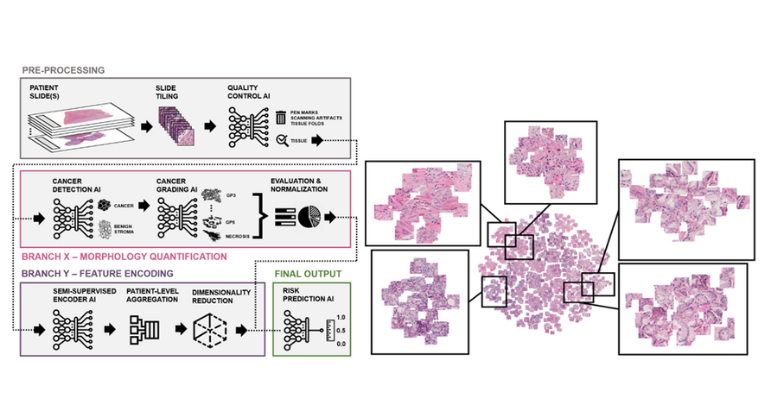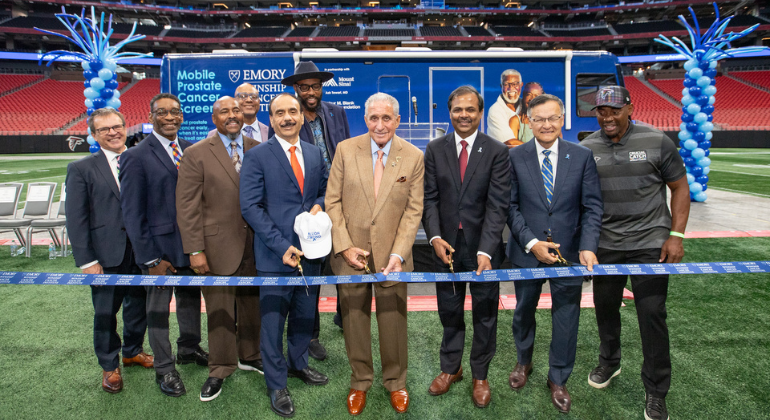Close Monitoring of Renal Tumors May Provide Alternative to Surgery
In patients with small renal tumors confined to the kidneys, close, active monitoring, as opposed to immediate surgery, is associated with low rates of tumor growth or death, according to a study by researchers at the Icahn School of Medicine at Mount Sinai and Fox Chase Cancer Center, part of the Temple University Health System, published in the September issue of the Journal of Urology.
Although surgical excision of tumors remains the standard of care for renal tumors that have not yet spread (localized), the risk of complications in elderly or ill patients may outweigh the benefits of surgery. The study suggests that actively monitoring renal tumors in some patients may prove a safer option than immediate surgery.
The incidence of kidney cancer in the United States has been increasing for two decades, with the trend partly attributed to the introduction of abdominal imaging studies such as CT scans or MRIs in the 1980’s. However, death rates due to renal cell carcinoma (kidney cancer) have not decreased, indicating that surgery may be of little or no benefit to some patients.
“We are beginning to better understand the behavior of tumors that grow on the kidneys,” said Reza Mehrazin, MD, Assistant Professor, Urology, Icahn School of Medicine at Mount Sinai, the study’s lead investigator. “In some patients, particularly those who are considered elderly or ‘high risk,’ we are now more likely able to delay surgery, sometimes indefinitely.” Much of the work behind the study was completed while Dr. Mehrazin was a researcher at Fox Chase Cancer Center.
In cases which are likely to result in surgery, it is important that urologists understand the natural history of renal tumors. If surgery does prove necessary, minimally invasive surgery using robotic tools may be possible. For example, a robotic partial nephrectomy provides the surgeon with enhanced visualization and precision during the procedure, which translates to significantly less blood loss. Moreover, the incisions are smaller and result in less pain and shorter recovery time and hospital stay.
“Patients diagnosed with renal tumors have more options than ever before, said Dr. Mehrazin. “Surgery is not always the best solution. It is vital that patients consult with their urologists to explore all options and make the best treatment decision for that particular case.”
About Fox Chase Cancer Center
Fox Chase Cancer Center, part of the Temple University Health System, is one of the leading cancer research and treatment centers in the United States. Founded in 1904 in Philadelphia as one of the nation’s first cancer hospitals, Fox Chase was also among the first institutions to be designated a National Cancer Institute Comprehensive Cancer Center in 1974. Fox Chase researchers have won the highest awards in their fields, including two Nobel Prizes. Fox Chase physicians are also routinely recognized in national rankings, and the Center’s nursing program has received the Magnet status for excellence four consecutive times. Today, Fox Chase conducts a broad array of nationally competitive basic, translational, and clinical research, with special programs in cancer prevention, detection, survivorship, and community outreach. For more information, visit Fox Chase’s Web site at www.foxchase.org or call 1-888-FOX CHASE or (1-888-369-2427).
About the Mount Sinai Health System
Mount Sinai Health System is one of the largest academic medical systems in the New York metro area, with 48,000 employees working across seven hospitals, more than 400 outpatient practices, more than 600 research and clinical labs, a school of nursing, and a leading school of medicine and graduate education. Mount Sinai advances health for all people, everywhere, by taking on the most complex health care challenges of our time—discovering and applying new scientific learning and knowledge; developing safer, more effective treatments; educating the next generation of medical leaders and innovators; and supporting local communities by delivering high-quality care to all who need it.
Through the integration of its hospitals, labs, and schools, Mount Sinai offers comprehensive health care solutions from birth through geriatrics, leveraging innovative approaches such as artificial intelligence and informatics while keeping patients’ medical and emotional needs at the center of all treatment. The Health System includes approximately 9,000 primary and specialty care physicians and 10 free-standing joint-venture centers throughout the five boroughs of New York City, Westchester, Long Island, and Florida. Hospitals within the System are consistently ranked by Newsweek’s® “The World’s Best Smart Hospitals, Best in State Hospitals, World Best Hospitals and Best Specialty Hospitals” and by U.S. News & World Report's® “Best Hospitals” and “Best Children’s Hospitals.” The Mount Sinai Hospital is on the U.S. News & World Report® “Best Hospitals” Honor Roll for 2025-2026.
For more information, visit https://www.mountsinai.org or find Mount Sinai on Facebook, Instagram, LinkedIn, X, and YouTube.

The Mount Sinai Hospital Ranked Among Top in the Nation by U.S. News & World Report®
Jul 29, 2025 View All Press Releases
New AI Tool by Mount Sinai Researchers Could Reshape Prostate Cancer Care
Sep 23, 2024 View All Press Releases
Immunotherapy After Bladder Cancer Surgery Shows Excellent Cancer-free Survival Rates
May 14, 2022 View All Press Releases

